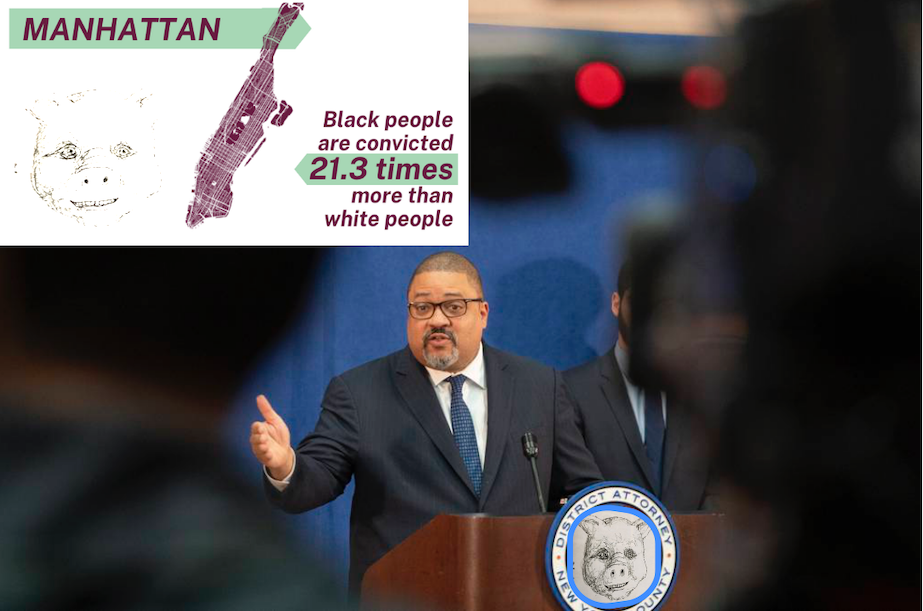From [HERE] Police in New Jersey’s capital have shown a pattern of misconduct, including using excessive force and making unlawful stops, the Justice Department said Thursday, in a report documenting arrests without legal basis, officers escalating situations with aggression and unnecessary use of pepper spray.
The 45-page report comes after a roughly yearlong investigation into the Trenton Police Department, undertaken after an officer shot and paralyzed a young Black man who attempted to drive away when officers didn’t tell him why they had stopped him.
The Justice Department found the police department’s practices violate the Fourth Amendment and the report makes more than two dozen recommendations for remedial action.
“The people of Trenton deserve nothing less than fair and constitutional policing,” said U.S. Attorney for New Jersey Philip Sellinger. “When police stop someone in Trenton, our investigation found that all too often they violated the constitutional rights of those they stopped, sometimes with tragic consequences.”
The DOJ report paints a scathing picture of a department with about 260 sworn officers in a city of nearly 90,000 people, where many struggle due to poverty and high crime rates. The city is uniquely deprived of a property tax base that could fund public safety because of the many state government buildings. The report states:
“We have reasonable cause to believe that TPD and the City engage in a pattern or practice of conduct that violates the Constitution. First, TPD uses excessive force, often escalating encounters when facing little resistance or threat. TPD’s excessive force includes both physical force and pepper spray. Second, TPD conducts pedestrian and traffic stops and searches without legal justification, unlawfully prolongs traffic stops, and makes unlawful arrests. These violations were especially prevalent in the Street Crimes Unit and the Violent Crimes Unit, but constitutional violations extended across the department. ..
From March 2, 2020, to December 31, 2023, TPD officers reported using force in 815 incidents. Officers reported incidents involving physical force 744 times, OC spray (commonly known as pepper spray) 120 times, and a firearm once. Sometimes officers used multiple types of force in one incident. We reviewed a random sample of these 815 incidents.
TPD officers frequently use force that violates the Fourth Amendment. TPD officers rapidly escalate everyday interactions, resorting to unreasonable force without giving people a chance to comply with orders. TPD officers use unreasonable physical force where they face little or no threat or resistance. And TPD officers use pepper spray unreasonably. Officers spray people who pose no threat but merely challenge officers’ authority—which, on its own, is not grounds for the use of force.
1. TPD Officers Rapidly Escalate Verbal Encounters, Leading to Unreasonable Force
TPD officers frequently and unnecessarily escalate verbal encounters, rapidly resorting to using excessive force despite no threat of harm to themselves or others. This practice violates the Fourth Amendment, causes serious injuries, and breaks down trust between TPD and the residents of Trenton…
2. TPD Officers Use Unreasonable Forms of Physical Force
TPD officers frequently grab, tackle, and punch people who show little resistance to orders or pose no threat. Even when they do meet some resistance, TPD officers often resort to dangerous forms of physical force that are unreasonable based on the threat. This use of unreasonable physical force is unlawful and can cause serious harm, including physical injuries and long-lasting trauma…
3. TPD Officers Use Pepper Spray Unreasonably
The use of OC spray, or pepper spray, violates the Fourth Amendment when officers spray people who pose no threat. When used appropriately, OC spray is an option when lethal force is not justified, and helps officers gain compliance by incapacitating people for about 30 minutes, typically without permanent injury. TPD officers, however, frequently turn to OC spray when people challenge, criticize, or insult the police, even when they pose no immediate threat…
4. TPD’s Weak Oversight Contributes to its Use of Excessive Force
Weak oversight reinforces TPD’s pattern of excessive force. TPD supervisors ratify virtually all uses of force without providing meaningful feedback to officers. And TPD fails to track uses of force effectively, making it impossible for TPD to identify or correct problematic trends. As a result, although we identified numerous incidents where TPD officers used excessive force, we found no case in which a supervisor indicated a use of force was not justified. This is consistent with what we heard from senior leaders: that TPD has no use of force problem.
TPD Conducts Warrantless Stops, Searches, and Arrests in Violation of the Fourth Amendment
5. TPD Officers Conduct Unconstitutional Pedestrian Stops, Searches, and Arrests
TPD officers stop and search pedestrians without reasonable suspicion or probable cause, particularly officers in the Street Crimes Unit and the Violent Crimes Unit, who jumped out on people simply walking down public sidewalks...
6. TPD Officers Unconstitutionally Prolong Traffic Stops, Leading to Unlawful Arrests
The Fourth Amendment prohibits officers from detaining someone longer than necessary to complete the purpose of the stop and attend to related safety concerns. Officers can prolong a traffic stop to search a car or take other investigative steps only if they have a legitimate reason to think that the person is armed or concealing evidence of a crime.
TPD officers, especially those in the Violent Crimes Unit and Street Crimes Unit, violate the constitutional limits for traffic stops. We observed TPD officers stop cars for traffic violations, remove the people inside—sometimes dragging them out without ordering them to exit or giving them time to comply—and search the cars based on a mere hunch that they may find evidence of a crime or a weapon. Those searches violate the Fourth Amendment…
7. The Pattern or Practice of Unlawful Stops, Searches, and Arrests Results from TPD’s Failure to Properly Document and Record Encounters





















































































































































































































































































